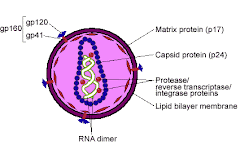"Domestic violence causes far more pain than the visible marks of bruises and scars. It is devastating to be abused by someone that you love and think loves you in return."
Dianne Feinstein,
(U.S. Senator, California)
October is National Domestic Violence Awareness Month. What we must never forget is that across our country, domestic violence traumatizes victims, endangers children, harms families, and threatens communities. According to the most recent report from the Department of Justice, there is an average of 700,000 incidents of domestic violence reported each year. Approximately one-third of women who are murdered each year are killed by their current or former husband or partner. Children who are subjected to domestic violence too often grow up to inflict violence on others, creating a cycle of violence that must be stopped.
For centuries no one talked about it, no one admitted to witnessing it no one did anything to prevent it. I recently read a very frightening statistic. During the Vietnam War 58,000 American soldiers were killed.
As with those who have died in other conflicts, memorials are put up in their honor. But during the same period, between 30,000 and 54,000 American women were killed in their homes. Why was this war against women allowed to continue?
Violence by male partners is the single largest cause of injury to women - more than muggings and car accidents combined. Yet violence against women has remained largely unreported. However, thanks largely to the activities of voluntary women's organizations; today that is changing.
Domestic abuse knows no social economic class, race, age or geographical boundaries. Every women and child in every area of the world can be a victim. It is the most graphic symptom of the imbalance of power in the relationship between men and women. We must continue to renew our commitment to prevent and punish the perpetrators of this despicable crime and bring hope and healing to those affected by it.
In some communities across our country, law enforcement, medical, and legal services for domestic violence victims are fragmented, requiring victims to travel to several different places to receive the help and treatment they need. Comprehensive service centers for domestic violence victims and their dependents enable health and justice professionals to better serve those in need." |Read more|
Thursday, September 27, 2007
October is Time to Battle against Domestic Violence
Blogs'FamilyCorruptionInTheBigEasy||
FamilyCorruptionInTheBigEasy: Part 2
Posted by
Boop
at
6:35 AM
![]()
Labels: domestic violence
Subscribe to:
Post Comments (Atom)


















No comments:
Post a Comment